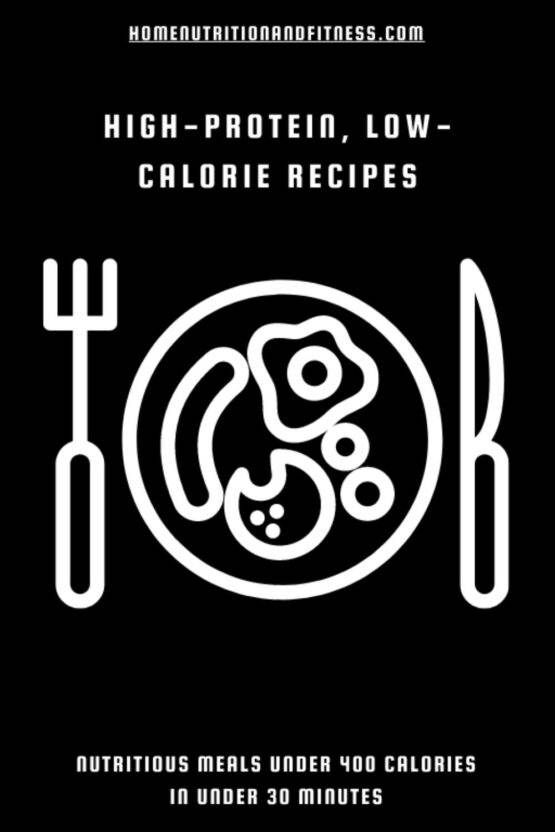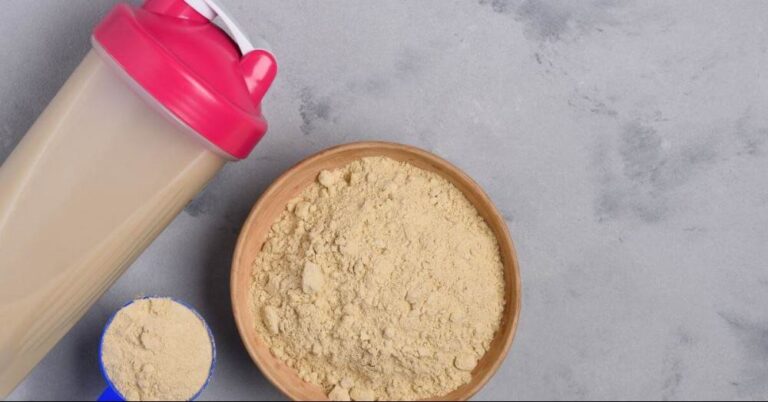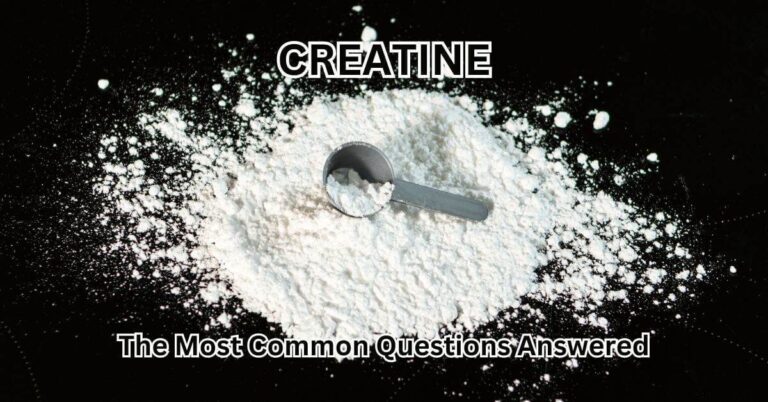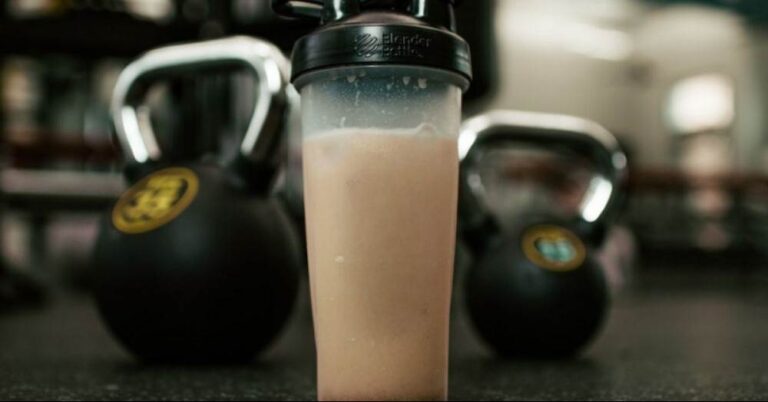Creatine is one of the most widely used sports supplements, taken to boost muscle strength and size. It is also known to benefit brain function and alertness.
It is produced naturally in our bodies to supply energy to our cells. It helps to supply ATP, which our cells use to create energy for everyday functions like breathing and moving our bodies.
Over 500 studies demonstrate creatine is generally safe and effective when used responsibly. But there are some considerations to keep in mind if taking creatine while ill.
Creatine has been found to improve immune function and even have positive effects on conditions like McArdle disease and certain psychiatric disorders. However, its impact on the immune system is mixed and can be both anti-inflammatory and pro-inflammatory. While creatine can help maintain muscle during illness and improve energy levels, it may lead to dehydration and stomach upset. High doses of creatine or existing medical conditions can be associated with kidney damage. As some antibiotics are processed by the kidneys, it may be worth speaking to a doctor before combining creatine and antibiotics. Overall, creatine supplementation during illness can be safe for the majority of people and aid recovery in specific situations.
How Creatine Works in the Body
Creatine is a natural substance produced by the body and is found predominantly in skeletal muscle cells. It helps your muscles produce energy during high-intensity exercise or activity. Creatine is also found in some foods, such as red meat, fish, and poultry. However, you can also get creatine from supplements.
When you take creatine, your muscles store it as phosphocreatine. Phosphocreatine is a high-energy compound that your muscles use to produce adenosine triphosphate (ATP). ATP is the main source of energy for all cells in the body, but it is especially important for muscle cells.
During high-intensity exercise, your muscles use up ATP quickly. Phosphocreatine can then donate a phosphate group to ADP to make more ATP. This allows your muscles to keep working hard, even when they are running low on ATP.
Creatine has a number of benefits for athletes and people who exercise regularly. It can help you increase your strength, power, and endurance. Creatine can also help you build muscle mass and recover from workouts faster but can it help with recovery from illness?
How Does Creatine Affect The Immune System?
The immune system is made up of 2 parts: the innate immune system and the adaptive immune system.
The innate immune system is the body’s first line of defence against germs entering the body. It responds in the same way to all germs and foreign substances, which is why it is sometimes referred to as the “nonspecific” immune system.
The adaptive immune system takes over if the innate immune system is not able to destroy the germs. It specifically targets the type of germ that is causing the infection.

Creatine can impact the immune system as a whole in a variety of ways.
- A 2021 study looked at the role of creatine in the development and activation of immune responses and found evidence that creatine can affect the immune system in positive and negative ways.
- Certain molecules called Toll-like receptors are found on immune cells. These receptors help detect infections in the body. Creatine can reduce the expression of these receptors. As a result, the immune response to infections may be slower in specific situations.
- Creatine can cause immune cells known as macrophages to transform into an anti-inflammatory type known as M2 macrophages. This transformation can reduce inflammation.
- In mouse models, creatine was shown to reduce lung inflammation and damage caused by transplants. However, it worsened airway inflammation in an asthma model by promoting the immune response towards more allergy-promoting Th2 cells.
- Creatine plays an important role in the normal development and activation of T cells, which are key cells of the adaptive immune system. When creatine transporters were lacking in mice, their T cell responses were negatively impacted.
- In mouse models of melanoma and colon cancer, creatine improved the anti-tumour function of CD8 T cells, especially when used in conjunction with other immunotherapies. This suggests that creatine may be helpful in fighting cancer.
Overall, creatine has the ability to affect both innate and adaptive immunity in both positive and negative ways.
Benefits Of Creatine For Depression And Immunity
The Pros and Cons of Taking Creatine When Sick
Taking creatine when sick does come with some potential benefits but also some drawbacks to be aware of.
Pros
- Maintain Creatine-Muscle Stores: Continuing to take creatine while sick can help to maintain your muscle creatine stores. This will benefit any post-recovery exercise.
- Reduced Muscle Loss: Creatine may also help counteract decreases in muscle strength and mass that can occur when sick. Illness often reduces appetite and physical activity, which can degrade fitness levels. Creatine may help minimise any losses.
- Improved immune function: As stated above, creatine has been shown to improve immune function in some animal studies. However, more research is needed to confirm this effect in humans.
- Reduced fatigue: Creatine can help to reduce fatigue and improve energy levels in people who are sick. This is because creatine helps to improve muscle function and ATP production.
Cons
- Dehydration: Creatine poses some dehydration risks, especially when under the weather. The supplement draws water into muscle cells, which can exacerbate dehydration from fever, nausea, or diarrhoea when ill. Drinking extra fluids is advised.
- Stomach upset: Creatine can cause stomach upset in some people, especially when taken in high doses. If you experience stomach upset when taking creatine, try taking it with food or reducing the dose.
- Interactions With Some Medication: Creatine may have interactions with some forms of medication. Check with your doctor before starting using creatine or any new medication.
Taking Medication and Antibiotics
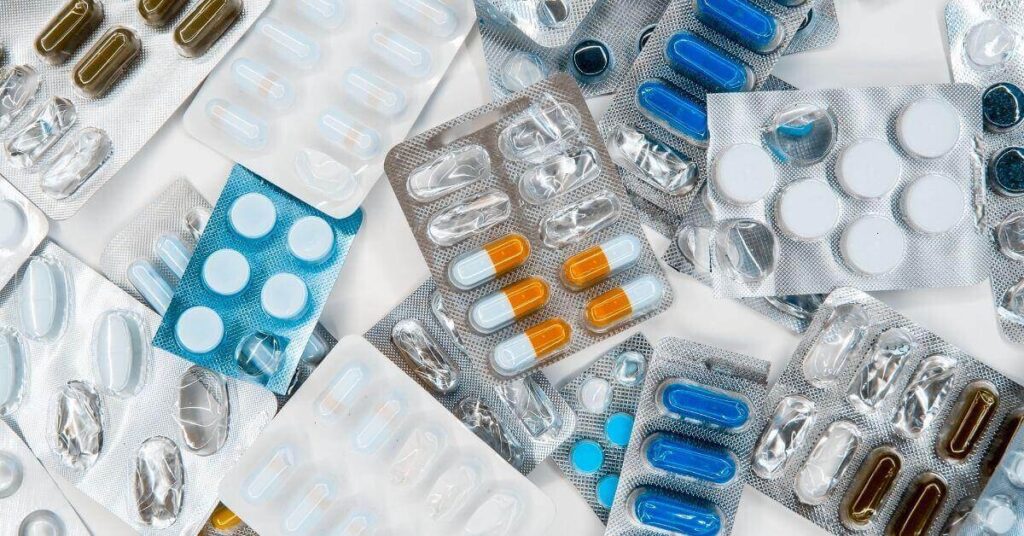
When taking any medication, including antibiotics, be aware that some may not mix well with creatine.
Creatine may improve healthy glucose management and as a result, could interact with some diabetes medication. You should discuss this with your doctor to make sure you’re not putting yourself at any risk.
There is a lot of theoretical ‘evidence’ which suggests that creatine and some antibiotics may have possible interactions. However, during my research, I have been unable to find any solid evidence to back up the theory.
For example, research into creatine supplementation has shown it to be safe in healthy adults when taking recommended doses. Kidney damage from creatine use has been mostly associated with high doses of creatine or pre-existing kidney issues.
Many antibiotic medicines are cleared from the body by the kidneys. A reduced kidney function would lead to a reduced capacity to filter out the antibiotics from the body, causing potential complications.
It is possible that the dots are being connected here and suggesting there is an interaction between creatine and antibiotics due to the kidney function links. If you have any concerns, talk to your pharmacist or doctor about possible interactions with any antibiotics prescribed.
A potential alternative to traditional antibiotics is Grapefruit Seed Extract (GSE), not to be confused with Grape Seed Extract. This has been shown to have potent antibacterial properties against all tested bacteria. There are no documented interactions between GSE and creatine.
Creatine Therapy
Creatine is not just studied as an athletic performance enhancer. There are multiple studies that have looked at its effectiveness in treating muscular, brain and psychological conditions.
For example, this study concluded that creatine supplementation improves skeletal muscle function in those suffering from McArdle disease. McArdle disease includes symptoms like painful muscle cramps, weakness, and fatigue whilst performing any physical activity.
A study published in 2012 looked at whether creatine had any therapeutic value for psychiatric disorders such as depression and PTSD.
In simple terms, the study attempted to understand how creatine might affect the brain, especially in people with mental health issues.
The main points gathered from the study suggest that giving creatine supplements to people with depression and post-traumatic stress disorder (PTSD) can improve their symptoms. However, it may not be helpful for schizophrenia and could be harmful for bipolar disorder.
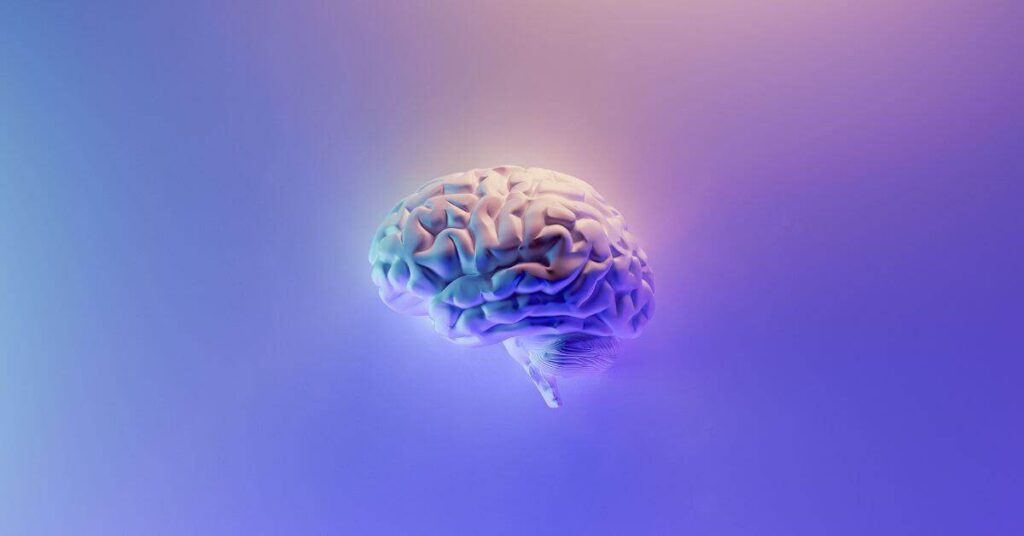
Other results from the study include:
Maintain Brain Energy Levels: The brain needs a lot of energy to function properly. When there’s a shortage of energy, it can lead to problems like mood swings and trouble thinking. Creatine seems to help the brain manage its energy better by using a special circuit called the “creatine circuit.” This circuit helps maintain energy levels in the brain.
Balance in the Brain: Creatine helps the brain stay balanced by making sure there’s enough of a compound called phosphocreatine. When this compound is used up, it can affect mood and thinking because the brain has to rely on a slower process to get energy.
Protect Against Neurodegenerative Diseases: Creatine might also be useful in treating diseases like Huntington’s Disease, Parkinson’s Disease, and Amyotrophic Lateral Sclerosis. It seems to protect brain cells from damage and increase energy availability.
Antioxidant Effects: Creatine might work as an antioxidant, helping to protect the brain from harmful substances that can cause damage when there’s not enough energy.
Neurotransmitter Functions: Creatine might influence the way brain chemicals (neurotransmitters) work. It could affect systems related to mood and thinking.
In summary, creatine therapy appears to have various effects on the brain. It might be helpful for some mental health conditions by improving energy management and protecting brain cells, but more research is needed to understand how it works and who it benefits the most.
Conclusion
Research suggests that creatine has a mixed effect on the immune system. It has been shown to have both an anti-inflammatory effect on the body as well as an inflammatory response under certain conditions.
Creatine plays a crucial role in T Cell activation, which is part of the adaptive immune system used to fight specific pathogens. It also shows promise as a treatment for some forms of cancer.
However, under different circumstances, creatine has been shown to slow the immune response to infection.
While taking creatine during sickness can help with muscle mass maintenance and energy during illness, you should be wary of dehydration and drink plenty of fluids.
Creatine therapy for physical and psychiatric disorders has also been extensively researched. It has been shown to be beneficial to those suffering from McArdle disease and also helped to improve the symptoms of those suffering from PTSD and depression.
High doses of creatine or pre-existing medical conditions have been associated with kidney damage. This is important to understand as many antibiotic medicines are cleared from the body by the kidneys. A reduced kidney function would lead to a reduced capacity to filter out the antibiotics from the body, causing potential complications.
Overall, creatine supplementation during illness is generally safe and can actually contribute to a faster recovery under certain circumstances.

